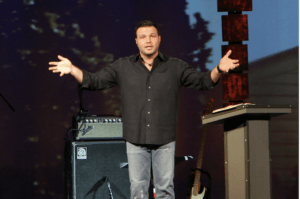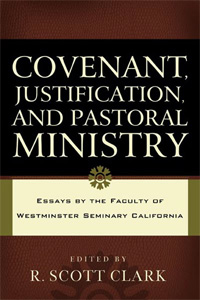There is a good deal of talk in contemporary evangelicalism about the rise, nature, and effect of so-called postmodernism, a movement in architecture, literature, philosophy, and religion associated with a circle of French writers such as Michel Foucault and Jacques Derrida. In . . . Continue reading →
Emergent/Emerging Church
Julie Roys Interviews Insiders From Mark Driscoll’s Current Congregation
Another Downside Of Pietism: Christ’s Bodily Resurrection Is Marginalized
If it does not care much about the Lord’s Supper (either to observe it or as to who communes) neither does it necessarily have a vital interest in the facts of the history of salvation. This tendency is plainly evident in two great figures in the history of Pietism, Friedrich Schleiermacher (1768–1834) and Walter Rauschenbusch (1861–1918). Both were raised in the Pietist tradition and both abandoned historic Christianity. Continue reading →
With Janet Mefferd On The Social Gospel
Here’s today’s episode of Janet Mefferd Today in which we discussed the “social gospel,” Walter Rauschenbusch, the emergent/emerging church movement and what it means that evangelicals seem to be heading back to this well for inspiration. We also talked about some alternative . . . Continue reading →
The Gospel Is Not Social
Between Monasticism And Transformation
Like Friedrich Schleiermacher (1768–1834) before him, Rauschenbusch’s Pietism had not equipped him to address the challenges before him. Like Schleiermacher, Rauschenbusch turned to the liberals for answers. He synthesized his Pietist theology with Albrecht Ritschl’s theology of the Kingdom of God. The Social Gospel movement wanted to bring about the Kingdom of God on earth. Their optimistic eschatology (doctrine of last things) told them that they could do it. They were inspired by the Modern idea of the universal brotherhood of humanity and the universal fatherhood of God. As many others before them had done the Social Gospel movement harassed the Christian faith to their social agenda. Continue reading →
Act Like Elders Nonetheless
While the current bylaws greatly restrict our authority, we believe we must act like elders none-the-less,” they write. “It is time to take responsibility for our church, regardless of how much our current bylaws prevent us from exercising that authority. —Sarah Pulliam . . . Continue reading →
Fauxccountability?
What needs to be very clear is that the current by-laws of Mars Hill Church do not give the elders the authority to examine these charges. The Board of Advisors and Accountability is in charge of convening a group of overseers to . . . Continue reading →
The Next Big Church Thing
One of the hottest restaurants in my hometown of Chicago is Next. Chef Grant Achatz’s first restaurant, Alinea, has three Michelin stars and is regarded as one of the best restaurants in the world. Achatz wanted his second restaurant, Next, to be . . . Continue reading →
Yes There Is A Reformed Doctrine Of Justification
Recently I responded to John Armstrong’s post on the TIME magazine new Calvinist discussion. In his reply, John makes this startling claim: There is no monolithic Reformed voice on justification (especially re: imputation) and I would be very happy if we allowed a . . . Continue reading →
On Being Truly Postmodern
An HB Classic
There is a good deal of talk in contemporary evangelicalism about the rise, nature, and effect of so-called “postmodernism,” a movement in architecture, literature, philosophy, and religion associated with a circle of French writers such as Michel Foucault and Jacques Derrida. In . . . Continue reading →
Brian Lee Reviews Love Wins
Brian Lee reviews Love Wins on the Daily Caller. Brian writes: “Rob Bell is one of the hottest Christian preachers in the nation today, but does he say anything that’s uniquely Christian? In his new book, “Love Wins,” Bell paints a picture . . . Continue reading →
Mark Galli Reviews Bell on Hell
Galli writes, “but in raising such momentous issues, he has raised crucial questions that also must be asked. If universal salvation is true, why does Jesus not showcase it? Why is Jesus’ teaching characterized instead by a relentless focus on the last . . . Continue reading →
Brian's God
Brian McLaren has source of continual fascination at the HB. He’s also been so for Martin Downes at Against Heresies. Martin is raising questions about McLaren’s latest in which he demonstrates that concern that the Emergent Movement is just another form of . . . Continue reading →
A Reformed Post-Boomer Visits Mars Hill, Downtown Seattle
And it’s not all bad. We could learn a few things. At the same time, they have not escaped the individualism of the boomers.
"The Shack" and the Atonement
Gary Johnson writes: The Scriptural support for the doctrine of penal substitution, as we will see, is overwhelming. Nonetheless, there is perhaps no other single doctrine that has elicited such harsh criticisms, even from those claiming to be Evangelical.
McLaren Calls Out Machen's Warrior Children
The boomer evangelicals are converging. In a brief, undated blog post (HT: Jeff Locke) McLaren has seized the analysis of “Machen’s Warrior Chidren” offered by another boomer critic of Reformed confessionalists, John Frame, to characterize them as those
Gary Johnson Reviews "The Shack"
Gary Johnson is pastor of Church of the Redeemer in Mesa, AZ. He has been pastor to one of our current students and is a thoughtful scholar of American Christianity and vigorous advocate of the Reformed faith. This review is part of . . . Continue reading →
Video: Emergent Panel Discussion Online
At Tangle (HT: Kevin DeYoung) The discussion features Kevin DeYoung, Scot McKnight, Tony Jones, Alex and Brett Harris.
Calvinism Old and "New"
In response to the recent TIME magazine piece on the YRR, Mark Driscoll published a piece on the Resurgence contrasting the “new” Calvinists with the “old” Calvinists. It was followed up by a piece with a kinder, gentler treatment of the tired, . . . Continue reading →







